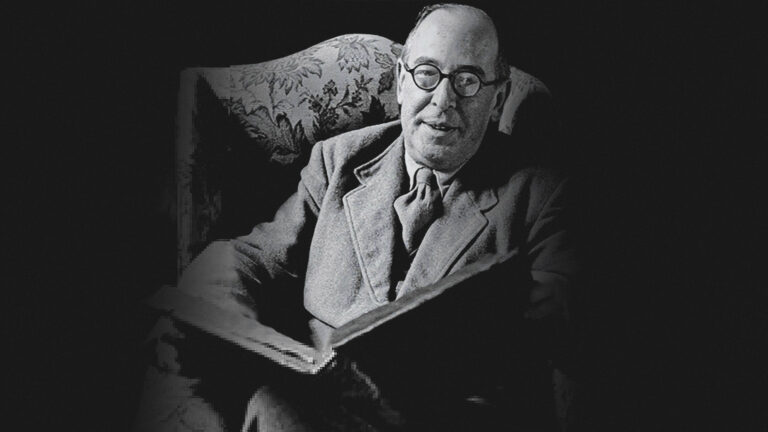One of my heroes in the faith, John Stott, made popular the idea of “double listening.” What we need, he claimed, is a Christian mind that’s “shaped by the truths of historic, biblical Christianity and also fully immersed in the realities of the contemporary world.”
Stott framed this call for double listening within the context of a “double refusal.”
Double Refusal
First, we refuse to escape from the world. We must not become so absorbed in our Bible study that the Word never comes into contact with the world. Second, we refuse to conform to the world. We must not become so enamored with contemporary events, trends, or theories that we fail to judge the world by the Word (or, worse, start to judge the Word by the world’s standards).
This double refusal means refusing the path of escapist retreat and the path of syncretistic conformity. Stott’s vision resembles the “missionary encounter” espoused by the missionary theologian Lesslie Newbigin. Both aspects—missionary and encounter—matter. Conformity with the world will lead to encounter without the missionary edge. Retreat from the world will lead to the illusion of purity but without an encounter with those we’re called to reach.
Need for Double Listening
Stott describes double listening as the positive side to the double refusal. He writes,
We need to listen to the Word of God with expectancy and humility, ready for God perhaps to confront us with a word that may be disturbing and uninvited. And we must also listen to the world around us.
We listen first to the Word, but we listen also to the world so we become aware of how best to bring the Word to the world. Stott explains,
We listen to the Word with humble reverence, anxious to understand it, and resolved to believe and obey what we come to understand. We listen to the world with critical alertness, anxious to understand it too, and resolved not necessarily to believe and obey it, but to sympathize with it and to seek grace to discover how the gospel relates to it.
At his best, Tim Keller was a model of double listening. Rooted in Scripture, steeped in theological reflection from his reading of the Puritans and his engagement with the wider Reformed tradition, ever-curious about trends in society, and well-versed in literature and analysis from non-Christians, Keller brought biblical truth into contact with contemporary idolatries in ways that cut to the heart. It was double listening—careful attention to the Word and curious analysis of the world in light of the Word—that made Keller so effective.
John Webster’s Crucial Reminder
If I hesitate at all when it comes to Stott’s proposal for double listening, I do so not because of Stott but out of concern for the way the phrase can be misused. Listen to the Word and to the world can easily turn, for some, into the notion that one must do extensive study of the world before knowing how to hear and apply the Word. Whereas Stott’s vision begins with the Word and then seeks to apply the Word to the world, those who talk about double listening can assume a pastor or teacher is steeped in Scripture but then focus primary time and attention on the cultural analysis. The world gets more attention.
Here’s where John Webster, in his “Discipleship and Calling” lecture, offers a crucial reminder. He’s singing Stott’s song but in a different key, reminding us that our task must always begin with and continue an emphasis on the Word, not the world. The faithful church, he writes,
will not let itself be trapped into reinventing itself endlessly for the sake of keeping up with the rhythm of the world. An excitable and unstable church cannot properly minister the gospel, and stability comes from constant, patient attention to Christ and his Word, and the avoidance of over-stimulation.
If the church is as trendy and excitable as the changing culture around it, the church will lose the ability to offer something truly distinctive—a stable steadfastness that comes from gazing at Jesus. As if to immediately anticipate the other pitfall Stott’s “double refusal” seeks to avoid, Webster clarifies,
Of course, the church will be alert to and interested in what the world says; it will listen courteously and genuinely. . . . This does not mean that the church is to be some sort of catatonic institution, self-absorbed and unresponsive.
No escapist retreat here! Webster’s point is that in listening to the world, the faithful church “will not be mesmerized or overawed by what is said.” The gospel is what mesmerizes us and fills us with all.
Attending to Jesus
Webster goes on:
The gospel outbids the world every time. Jesus himself speaks more authoritatively, legitimately, winningly and interestingly than the world. If the church really loves the world, then the church will give its mind to listen to Jesus’ prophetic presentation of himself; it will attend to the gospel, not as something it already knows but as something must always learn. Hearing the gospel will help the church to help the world.
This is why double listening is a never-ending process. We should never think we’ve completed the task of listening to the Word so we now can engage with the world. We must always return, again and again, to the Word, because it’s there we hear the gospel. We’re ever-learning the Word, ever-listening to the voice of the Shepherd. Listening to the Word is what will reveal the truth about the world.
Maybe the world is late modern, postmodern, late capitalist, globalized, and so on. But to the church it has been given to confess where we really are. We are at the place where the living Jesus accosts us, and all around us, with his infinite mercy and love; where he presents us with the great divine [accomplished work]; where he calls us to follow; and where he expects of us the obedience which is both his due and our fulfillment.
The world spins. The Word stands.
The world is light and fleeting. The Word is weighty and everlasting.
For double listening to work, we must give the Word not only temporal priority but our steadfast attention. We look to the world but we gaze at Jesus, so that when we do engage the world, it’s truly the Word we bring.
If you would like my future articles sent to your email, as well as a curated list of books, podcasts, and helpful links I find online, enter your address.


















